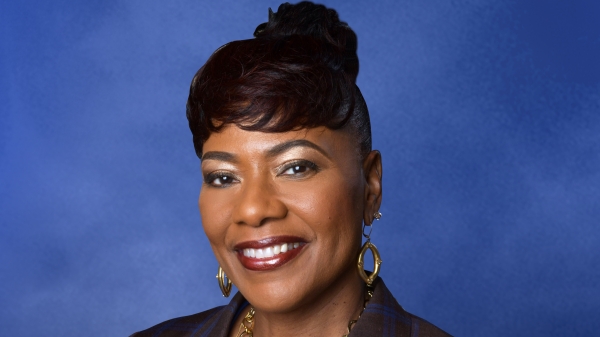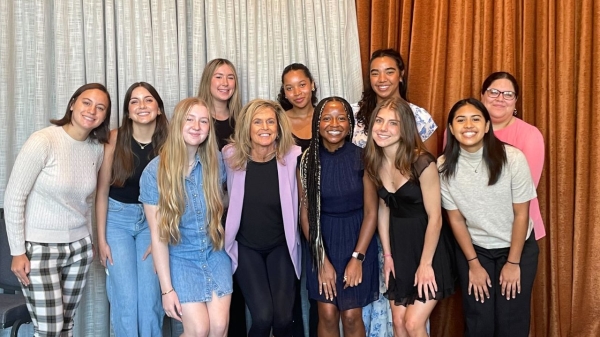ASU senior's thesis explores gender, politics and perception

Lydia Dawson, a senior at ASU's School of Politics and Global Studies, has been selected to present her thesis on how public officials' Instagram comments and gender affect their public perception at the National Conference on Undergraduate Research. Courtesy photo
For all its benefits, social media is an environment that remains rife with judgement, especially if you're a public figure, and — according to an Arizona State University student's recent research — especially if you're a woman.
Lydia Dawson, a senior at ASU's School of Politics and Global Studies, recently conducted an experiment that found female politicians were more harshly judged overall for negative Instagram comments.
Dawson's experiment served as the basis for her thesis for Barrett, The Honors College. She was recently selected to present it at The National Conference on Undergraduate Research in Long Beach, California, in April.
Dawson's idea began in Gina Woodall’s POS 435: Women and Politics class.
“I took Dr. Woodall's Women and Politics class in the fall of 2022 and absolutely loved it, so when I was considering thesis ideas in the spring of 2023, I knew I wanted to explore themes related to gender and politics," she said.
Dawson’s thesis explores how politicians are treated over Instagram comments and how this impacts voters' perceptions of them, with a particular focus on the gendered aspect of this.
“I initially approached Dr. Woodall with the idea of performing a content analysis of Instagram comments to examine if there was any difference in the types (negative/positive) of comments male and female politicians received,” Dawson said. “After she mentioned the possibility of applying for lab space, we discussed running an experiment to test how negative Instagram comments alter voters' perceptions of politicians, and whether or not this differed based on the politician's gender.”
The experiment separated the participants into four groups, assigned them each to either a female or male politician, and showed them each the same hypothetical politician’s profile with the only difference being the name and gender on it. They were then told to evaluate the politician on six different metrics. The experimental group was then shown negative Instagram comments that had been attributed to their assigned politician and were asked to evaluate the politician a second time.
“I was shocked to find that the female politician received higher scores on all six metrics both before and after the presentation of the comments, as literature in this field has shown that female candidates typically score lower than male candidates on the metrics I presented,” Dawson said.
She noted that there were many interesting results, most of which were less positive for female politicians.
Dawson's experiment showed that while the female politician scored higher both before and after the stimulus was presented overall, the female politician’s scores were more harshly affected than her male counterpart.
Aside from some interesting findings, Dawson's thesis has also led to her deciding to pursue a PhD in political science with an emphasis on gender and politics, rather than becoming a lawyer like she had initially planned, due to her newly found love of research.
More Law, journalism and politics

Peace advocate Bernice A. King to speak at ASU in October
Bernice A. King is committed to creating a more peaceful, just and humane world through nonviolent social change.“We cannot afford as normal the presence of injustice, inhumanity and violence,…

CNN’s Wolf Blitzer to receive 41st Walter Cronkite Award for Excellence in Journalism
Wolf Blitzer, the longtime CNN journalist and anchor of “The Situation Room With Wolf Blitzer,” will accept the 41st Walter Cronkite Award for Excellence in Journalism, Arizona State University has…

Cronkite School launches Women Leaders in Sports Media live-learn program
Women in a new sports media program at Arizona State University got a solid game plan from a sports veteran at an Aug. 20 welcome event.“Be humble, be consistent and be a solver,” Charli Turner…